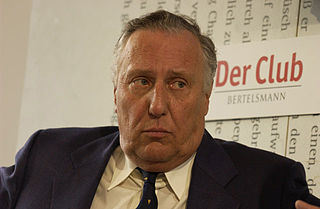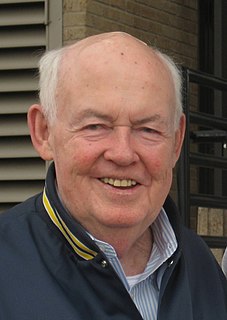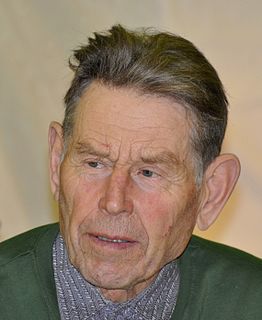A Quote by Richard A. Falk
As matters now stand, the veto seems inappropriate, given the absence of any deep ideological split between major states, and definitely constrains the war-prevention mission of the UN. Similarly, the present permanent five are out of touch with geopolitical realities, and constitute a remnant of a West-centric world order, casting a shadow of illegitimacy across the activities of the most important organ of global policymaking in the UN System.
Quote Topics
Absence
Across
Activities
Any
Between
Casting
Constitute
Deep
Definitely
Five
Geopolitical
Given
Global
Ideological
Important
Inappropriate
Major
Matters
Mission
Most
Now
Order
Organ
Out
Permanent
Present
Prevention
Realities
Seems
Shadow
Similarly
Split
Stand
States
System
The Most Important
Touch
Veto
War
West
World
World Order
Related Quotes
There was a deliberate decision after the failure of the League of Nations to make the next attempt to establish a global political actor sensitive to geopolitical realities. The underlying idea was to provide major states, defined in 1945 by reference to the winners in the Second World War (now an anachronism), with assurance that they could take part in the UN without jeopardising their national interests. In this regard, the UN has succeeded, as none of the big countries has withdrawn, and the Organisation has managed to achieve virtually universal membership of all sovereign states.
It could well be argued that the continuing rights abuses of the present Iraqi regime, if it is allowed to survive, will prove most distressing. This is beyond any doubt. But the West has been required to witness terrible scenes in China, Russia, Vietnam, East Timor, Cambodia, and many other parts of the world. It is simply not possible for the United States to impose humanity on a worldwide scale unless it is prepared to enter into permanent global war.
Maybe we need to start with the rethinking of what is "west" and what is "non-west." It seems to me that there are any number of populations who already cross that divide, and we could probably point to several existing states that belong exclusively neither to one category nor to the other. Do we use these terms to designate geographical realities, geopolitical ones, or perhaps sites of power, exploitation, orientalism that move through space and time in ways that have to be tracked historically.
A split between the U.S. and its traditional allies, if it becomes a permanent feature of the new global order, would lead to deeper fragmentation among the world's market-oriented democracies. That will surely shift the long-term balance of power in China's favor, as it moves steadily toward becoming the world's largest economy.
It is my hypothesis that the fundamental source of conflict in this new [post-Cold-War] world will not be primarily ideological or primarily economic. The great divisions among humankind and the dominating source of conflict will be cultural. Nation states will remain the most powerful actors in world affairs, but the principal conflicts of global politics will occur between nations and groups of different civilizations. The clash of civilizations will dominate global politics. The fault lines between civilizations will be the battle lines of the future.
To achieve effectiveness and legitimacy it is time to scrap the right of veto given to permanent members of the UN, or at least severely restrict its use. It is also time to either abandon the idea of permanent membership or broaden it to reflect the rise of non-Western states to the status of global leaders (e.g. Brazil, India, Indonesia, Turkey, South Africa), and to downgrade European representation by either giving the European Union a single seat or rotating a European state among Germany, France, UK, and Italy.
We have to recognize that the reason that the global order that we've enjoyed and almost take for granted over the last several years exists is that after World War II, the United States and its allies tried to build an antidote to what they had seen between World War I and World War II. There, they'd seen protectionism, beggar-thy-neighbor trading policies, so they said, we'll build an open international economy. And they did that.
Everybody knows that the United Nations is not the Secretary-General; he has an important position, but the United Nations is the states within this organization, and to be frank, most of the people say only the five permanent members; this is the United Nations because they have the veto, they can do whatever they want and they can refuse whatever they want, and if there's a reform that is very much needed for this organization.
I think, while it is true that the Hillary Clinton and I voted differently on the war in Iraq, what is important is that we learn the lesson of the war in Iraq. And that lesson is intrinsic to my foreign policy if elected president, is the United States cannot do it alone. We cannot be the policeman of the world. We are now spending more I believe than the next eight countries on defense. We have got to work in strong coalition with the major powers of the world and with those Muslim countries that are prepared to stand up and take on terrorism.
In the United States at present the 'culture wars' of the last thirty years have now produced a horrid stand-off which compels you all into a binary either/or with all kinds of spin-offs. This is deeply unhealthy. The trouble is that the way the system is set up in order to get in and try to change it you have to be (a) a millionaire, (b) someone who can work inside the system long-term, (c) someone prepared to make deals and compromises... Which does rule out the vast majority of committed Christians.
The US is the most wretchedly villainous state of all times. Anyone aware of global issues can easily imagine how vast the hatred for the United States - a corrupted, swollen, paralysing and suffocating political entity - must be across the Third World - and among the thinking minority of the West too.

































